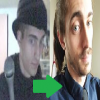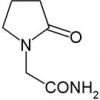Not so quite, Taurine is indeed a very mild GABA agonist but it is not its main mode of action. In fact it is a GABA agonist because it increases GABA reserves by inhibiting GABA transaminase but on the long term taurine has been shown to increase GABA receptors density quite significantly by the way.
That's very interesting. Do you have a source? I see a lot of hits for "taurine gaba receptor density", but am having trouble finding one that's relevant.
Please kindly note that, whilst TAURINE does indeed inhibit GABA transaminase and thereby slow the metabolization of GABA, TAURINE itself also binds directly to the GABA
A receptor mimicking the effects of GABA and hence functions directly as a GABA AGONIST.

You might find the following of interest:

J Biomed Sci. 2010 Aug 24;17 Suppl 1:S14.
Pharmacological characterization of GABAA receptors in taurine-fed mice.L'Amoreaux WJ, Marsillo A, El Idrissi A.
Source
Department of Biology, College of Staten Island, 2800 Victory Blvd, Staten Island, NY 10314, USA. William.Lamoreaux@csi.cuny.edu
Abstract
BACKGROUND:
Taurine is one of the most abundant free amino acids especially in excitable tissues, with wide physiological actions. Chronic supplementation of taurine in drinking water to mice increases brain excitability mainly through alterations in the inhibitory GABAergic system. These changes include elevated expression level of glutamic acid decarboxylase (GAD) and increased levels of GABA. Additionally we reported that
GABAA receptors were down regulated with chronic administration of taurine. Here, we investigated pharmacologically the functional significance of decreased / or change in subunit composition of the GABAA receptors by determining the threshold for picrotoxin-induced seizures. Picrotoxin, an antagonist of GABAA receptors that blocks the channels while in the open state, binds within the pore of the channel between the beta2 and beta3 subunits. These are the same subunits to which GABA and presumably taurine binds.
METHODS:
Two-month-old male FVB/NJ mice were subcutaneously injected with picrotoxin (5 mg kg-1) and observed for a) latency until seizures began, b) duration of seizures, and c) frequency of seizures. For taurine treatment, mice were either fed taurine in drinking water (0.05%) or injected (43 mg/kg) 15 min prior to picrotoxin injection.
RESULTS:
We found that taurine-fed mice are resistant to picrotoxin-induced seizures when compared to age-matched controls, as measured by increased latency to seizure, decreased occurrence of seizures and reduced mortality rate. In the picrotoxin-treated animals, latency and duration were significantly shorter than in taurine-treated animas. Injection of taurine 15 min before picrotoxin significantly delayed seizure onset, as did chronic administration of taurine in the diet. Further, taurine treatment significantly increased survival rates compared to the picrotoxin-treated mice.
CONCLUSIONS:
We suggest that the elevated threshold for picrotoxin-induced seizures in taurine-fed mice is due to the reduced binding sites available for picrotoxin binding due to the reduced expression of the beta subunits of the GABAA receptor. The delayed effects of picrotoxin after acute taurine injection may indicate that the two molecules are competing for the same binding site on the GABAA receptor. Thus, taurine-fed mice have a functional alteration in the GABAergic system. These include: increased GAD expression, increased GABA levels, and changes in subunit composition of the GABAA receptors. Such a finding is relevant in conditions where agonists of GABAA receptors, such as anesthetics, are administered.
PMID: 20804588
----------------------------------------------------------------------------------------------------------------------------------------------
Medical News T. 2010 Jan 18
Scientists Close In On Taurine's Activity In The BrainDr. Minerva Yue, Dr. Angelo Keramidas, Dr. Peter A. Goldstein, Dr. Dev Chandra, Dr. Gregg E. HomanicsSource:
U.S. National Institutes of Health (NIH)Taurine is one of the most plentiful amino acids in the human brain, but neuroscientists are still puzzled by just how brain cells put it to use. Now, a team of researchers at Weill Cornell Medical College in New York City has uncovered a prime site of activity for the molecule, bringing them closer to solving that mystery.
"We have discovered that taurine is a strong activator of what are known as GABA receptors in a regulatory area of the brain called the thalamus," says study senior author Dr. Neil L. Harrison, professor of pharmacology and pharmacology in anesthesiology at Weill Cornell Medical College. "We had discovered these receptors two years ago and showed that they interact with a neurotransmitter called gamma-aminobutyric acid (GABA) -- the brain's key inhibitory transmitter -- that is also involved in brain development.
It seems that taurine shares these receptors."The finding is a surprise and opens the door to a better understanding of taurine's impact on the brain, the researchers report in this month's issue of the
Journal of Neuroscience.
And while the amino acid is made naturally by the body, it's also a much-touted ingredient in so-called "energy drinks" such as Red Bull. "Its inclusion in these supplements is a little puzzling, because our research would suggest that instead of being a pick-me-up, the taurine actually would have more of a sedative effect on the brain," Dr. Harrison says.
Still, the prime focus of the new study was simply to find a site for the neurological activity of taurine; such a site has been missing despite many years of study.
"Scientists have long questioned whether taurine might act on an as-yet-undiscovered receptor of its own," notes lead researcher Dr. Fan Jia, postdoctoral scientist in the Department of Anesthesiology. "But after some recent work in our lab, we ended up zeroing in on this population of GABA receptors in the thalamus."
The thalamus, located deep in the brain's center, is involved in what neuroscientists call "behavioral state control," helping to regulate transitions between sleep and wakefulness, for example. "It's like a railway junction, controlling information traffic between the brainstem, the senses and the executive functions in the cortex," Dr. Harrison explains. "When you're sleeping, the thalamus is discharging slowly and isolates the cortex from sensory input. But when you're awake, the thalamus allows information from the sensory system to activate the cortex."
Investigating further, the researchers exposed thin slices of thalamic tissue from the brains of mice to concentrations of taurine that were similar to what might be found in the human brain.
"
We found that taurine is extraordinarily active on this population of GABA receptors in the thalamus," Dr. Harrison says.
"It came as a bit of a surprise that the same receptor was used by both taurine and GABA. Nevertheless, finding taurine's receptor has been like discovering the 'missing link' in taurine biology."Of course, the question of what taurine actually does in the brain remains unanswered for now. "Unraveling that mystery is the prime goal of that research, and that's where we're headed next." Dr. Harrison says.
There's already one leading theory: "GABA is important for forging new cell-to-cell connections within the developing brain, and because taurine shares a receptor with GABA, it, too, may play a role in neurological development," the researcher speculates.
And what about the energy-drink connection? "Remarkably little is known about the effects of energy drinks on the brain. We can't even be sure how much of the taurine in the drink actually reaches the brain!" Dr. Harrison says. "Assuming that some of it does get absorbed, the taurine -- which, if anything, seems to have a sedating effect on the brain -- may actually play a role in the 'crash' people often report after drinking these highly caffeinated beverages. People have speculated that the post-Red Bull low was simply a caffeine rebound effect, but it might also be due to the taurine content."
----------------------------------------------------------------------------------------------------------------------------------------------
J Biomed Sci. 2011 Feb 5;18:11.
Role of taurine on acid secretion in the rat stomach. Huang KH,
Chang CC,
Ho JD,
Lu RH,
Tsai LH.
SourceDepartment of Ophthalmology, Taipei Medical University Hospital, Taipei Taiwan.
Abstract BACKGROUND: Taurine has chemical structure similar to an inhibitory neurotransmitter, γ-aminobutyric acid (GABA). Previous studies on GABA in the stomach suggest GABAergic neuron is involved in acid secretion, but the effects of taurine are poor understood.
METHODS: The effects of taurine on acid secretion, signal transduction, and localization of taurinergic neurons were determined in the rat stomach using everted whole stomach, RIA kit and immunohistochemical methods.
RESULTS: We used antibodies against taurine-synthesizing enzyme, cysteine sulfuric acid decarboxylase (CSAD), and taurine. CSAD- and taurine-positive cells were found in the muscle and mucosal layers. Distributions of CSAD- and taurine-positive cells in both mucosal and muscle layers were heterogeneous in the stomach.
Taurine at 10-9~10-4 M induced [stomach] acid secretion, and the maximum secretion was at 10-5 M, 1.6-fold higher than the spontaneous secretion. Taurine-induced acid secretion was completely inhibited by bicuculline and atropine but not by cimetidine, proglumide, or strychnine. Atropine and tetrodotoxin (TTX) completely inhibited the acid secretion induced by low concentrations of taurine and partially inhibited induced by high concentrations. Verapamil, a calcium blocker agent, inhibited acid output elicited by taurine. We assumed all Ca2+ channels involved in the response to these secretagogues were equally affected by verapamil. Intracellular cAMP (adenosine 3', 5'-monophosphate) in the stomach significantly increased with taurine treatment in a dose-dependent manner. High correlation (r=0.859, p < 0.001) of taurine concentrations with cAMP was observed.
CONCLUSIONS: Our results demonstrated for the first time in taurine-induced acid secretion due to increase intracellular calcium may act through the A type of GABA receptors, which are mainly located on cholinergic neurons though cAMP pathway and partially on nonneuronal cells in the rat stomach.
PMID: 21294907
Edited by ScienceGuy, 13 August 2012 - 12:20 PM.




















































